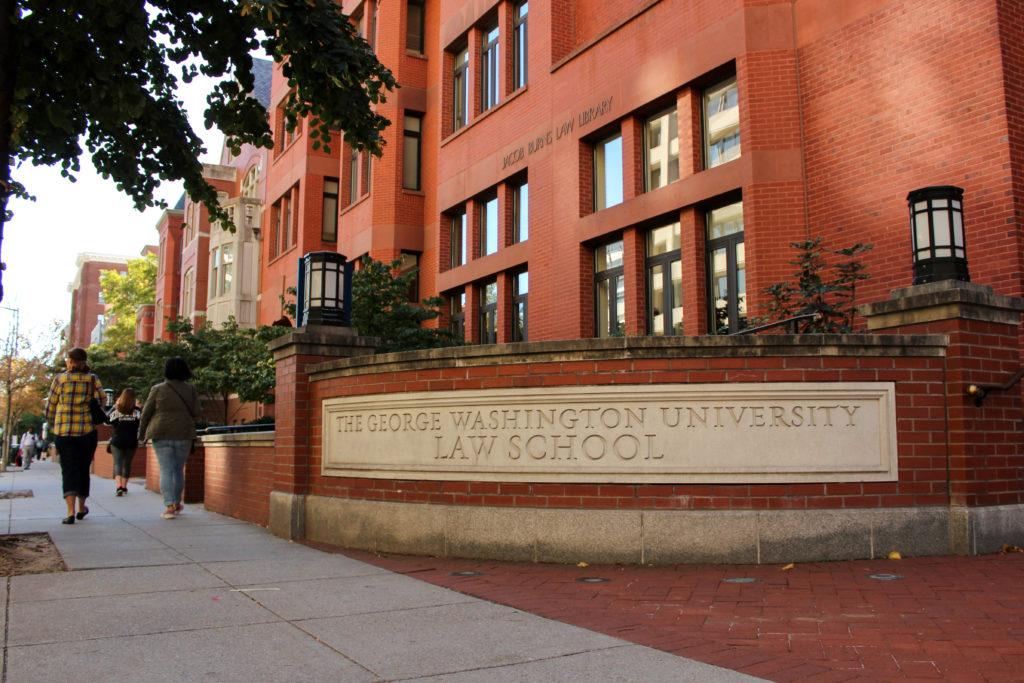Law school officials are convening an affinity group for black administrators to discuss race-related challenges in higher education.
The group, called the GW African American Leadership Collective, was announced in a release last week and will be run by Roger Fairfax, the Jeffrey and Martha Kohn senior associate dean for academic affairs in the law school and a professor of law. Officials and law experts said the new group will help foster a community among black administrators and provide a forum for them to share their experiences about topics like diversity in higher education.
The collective – comprised of 15 vice presidents, vice provosts, deans and associate deans – will meet “bimonthly” and will host several events and speakers in the coming months focusing on “challenges and opportunities” for black Americans in higher education administration, the law school release states.
“The establishment of GWAALC is the culmination of an effort to build community among African Americans in leadership at the University and to facilitate vehicles for mentoring, pipeline and leadership development, recruitment and retention of administrators and faculty of color and diversity and inclusion efforts across the University,” Fairfax said in the release.
Through a law school spokeswoman, Fairfax declined to answer 11 questions about the group, including how often the group will meet, why it was launched, who will serve in the collective, what events will take place and how the group will promote diversity and inclusion efforts at GW.
The new group is forming as dozens of other diversity measures have taken shape across the University as a whole over the past year. Administrators announced a slew of new initiatives, including mandatory diversity training for all incoming students and a bias reporting system, after a racist Snapchat incident rocked campus last year.
John Banzhaf, a professor of public interest law, said the new affinity group will provide administrators with networking opportunities and prompt discussion about diversity.
“For universities that don’t have this, we can be a leader and a shining example for others,” he said.
Law school experts said the collective could help officials collaborate to enact change on campus, like creating diversity initiatives, recruiting diverse faculty and providing members with access to mentoring and leadership development training.
Dorothy Brown, a professor of law at Emory University, said black administrators are often expected to provide their experiences or insights to officials when a “racial crisis” occurs. She said regularly asking black administrators to provide insight during these incidents can be “taxing and toxic” because of the stress from added responsibilities tacked on top of their other daily tasks.
She said black affinity groups can provide black administrators with an added support system, including access to mentoring from colleagues who have similar experiences.
“Talking with other black administrators who are experiencing similar issues makes the difficult work a little bit easier,” she said in an email. “You discover that you are not alone and that there is wisdom in numbers – especially from those with more experience.”
Bryan Fair, a professor of law at the University of Alabama, said historically white and male universities have been exclusionary of minority groups, and the collective can collaborate with officials to promote diversity initiatives and provide “pathways” to leadership for black administrators.
“These organizations, these collectives, these leadership groups, are designed first to create an affinity group, a community of people with similar backgrounds, to both collaborate internally and externally with other operations on campus and I think they serve that role well,” he said.
He said universities that have affinity groups are likely to attract more black administrators who see mentorship opportunities and “pathways to leadership.”
Jamel Donnor, an associate professor of education at the College of William and Mary, said affinity groups can help black administrators overcome challenges they face, like racial stereotyping and doubts about their competency as administrators.
“You have one of these organizations to deal with things that are bad but are also an opportunity to grow and develop professionally as well,” he said.
But he said top officials must take the concerns of black administrators “seriously” to enact changes in institutional culture.
“Are they just viewed as this nice side dish, or are they considered stakeholders, meaningful stakeholders, with a valuable voice in the institution?” Donnor said. “That speaks volumes, and that will determine what kinds of policies get implemented and what kinds of procedures are implemented to create a more diverse, equitable and safe institution for all constituents.”





